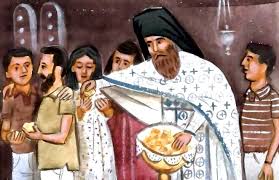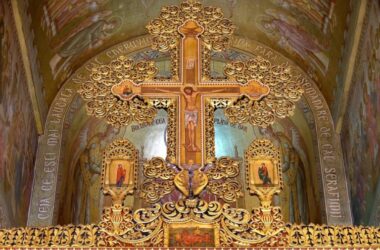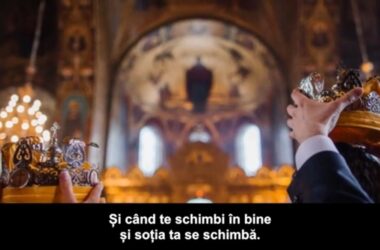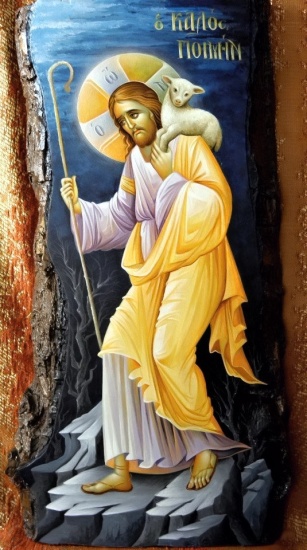†Jeremiah, metropolitan of Gortina and Megalopoli
- Christian brothers, in my brief preach from today I shall speak to you about the gift we receive at the end of the Divine Liturgy. It is called antidoron („instead of gifts”), as in Greek and we take it instead of the Eucharistic bread. We call the Holy Communion the Consecrated Gifts . In the Holy Communion Christ gives us His body and blood as a gift, without deserving them. Therefore, the antidoron was spared for those who for certain reasons cannot take the Eucharist and instead of it, instead of the consecrated gifts, they receive the blessing of the antidoron.
- And indeed great is the blessing of the antidoron, my brothers. It is a blessing because it is „permeated” by the holy prayers from the Proscomidy. During this holy service, from the prosphora made by the blessed hands of the pious women, the priest removes its core where is written: „Jesus Christ, NI, KA”, and puts it on the Holy Disk. Do you know what it symbolizes the remainder? It symbolizes the Holy Virgin’s womb. This is what saint Germanos, the patriarch of Constantinople says. Cause just like from her womb came out Christ, in the same way from the „womb” of the prosphora comes out, by the hands of the priest at The Holy Proscomidy, the core part with „JESUS CHRIST, NI, KA”. During the Divine Liturgy this part by the blessing of the priest – what a great miracle! – will become Christ, will be transformed into the body of our Lord Jesus Christ.
- The remaining part from the prosphora that symbolizes the Holy Virgin, just as I said, it is cut for antidora. Isn’t it a great blessing to receive this piece from the prosphora and eat it? In ancient times people called the antidoron „Holy Virgin’s Ascension”. They called it in this way cause the priest indeed raises the bread to his forehead when Proskomedia begins, saying a special troparion: „You redeemed us from the curse of the Law…”. And we call it like this because as I said the antidoron symbolizes the Holy Virgin’s womb.
As you may realize, Christian brothers, for being able to eat the antidoron, you must not eat anything before. For the reason that the antidoron „passed” through the Proscomidy, that’s not like the Lity, where we eat the bread even if we have eaten before. And Proscomidy is the divine service related to the Divine Liturgy and named by some people „Liturgy in embryo”.
- Dear Christian brothers, in the same time with the antidoron you receive one more special blessing. Listen! How much you wish to enter the Holy Altar and worship the Holy Table! But this is not allowed to you, laymen, being especially forbidden to women. Although it is not allowed to you as laymen to enter the Holy Altar for kissing the Holy Table, by receiving the antidoron you kiss the priest’s hand that touched it. You may say that even on the road you may kiss the priest’s hand and receive the same blessing. No! Take heed! When you receive the antidoron, you get a special blessing from the priest. Because this is done right after the Divine Liturgy, when the priest’s hand touched the Holy Gifts and there is still some holy blood dripping from Christ’s blood, it is a hand from which is dripping the holy blood. So by kissing the priest’s hand when you receive the antidoron it is like you would kiss the Holy Table itself, if not even more. In order to receive this final blessing that I said you get when taking the antidoron, it is well understood that you must take it right from the celebrant priest’s hand and not from its vessel with your own hand.
- In the end I recommend you not to eat all the antidora you receive on Sunday from the priest (or even to ask for some more), but keep a little for eating it every day at home. Every morning take a small crumb (on an empty stomach) with little holy water, blessed at the beginning of each month. But first take the antidoron then the holy water, because the antidoron is from the Divine Liturgy. I repeat that according to the liturgical ordinances, the real antidoron is that which is cut from the consecrated prosphora, blessed by the priest; that from which is taken out the piece with „JESUS CHRIST, NI, KA” and is put on the Holy Disk and not the one which is cut from other prosphoras.
With a lot of blessings,
† Jeremiah, Metropolitan of Gortina and Megalopolis





